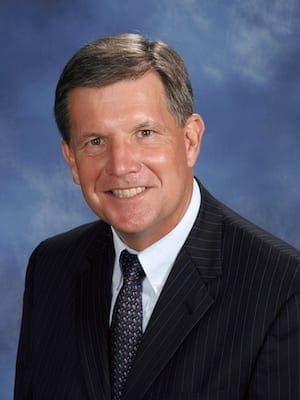Election years can be volatile, unpredictable and filled with heated political rhetoric.
It is not unusual these days for prominent pastors and local clergy to join the fray of bombastic oratory.
While I do not think pastors should be silent, I do think a pastor’s tone and message should be helpful, encouraging and nonpartisan.
Especially during election years, pastors are faced with the dilemma of how to address political issues fairly, legally and biblically from the pulpit.
While some on both the left and the right attempt to hijack the pulpit in order to support their cause or their favored candidate, many ministers strive to encourage members to participate in the political process but refuse to endorse candidates.
This year marks the ninth presidential election since I began serving as a pastor. Additionally, during my ministerial tenure, I have observed numerous local elections and dozens of referendums.
Early in my ministry, thanks to wise mentors, I committed to a strategy for dealing pastorally with political issues from the pulpit that is based on four objectives:
1. To maintain a nonpartisan pulpit.
2. To protect the separation of church and state.
3. To respect the diverse political convictions within the congregation.
4. To highlight the biblical texts concerning respect for our government and our governmental leaders.
I am troubled whenever I hear accounts of ministers who publicly endorse candidates from the pulpit, of churches who provide biased or partisan voters’ guides and of churches who have invited political candidates or their spokespersons to speak in Sunday worship services.
From a historical Baptist perspective, for a pastor to engage in partisan politics would be considered an abuse of pastoral privilege and a violation of a pastor’s civil and spiritual responsibility.
Historically, when the church and state become intertwined, the church doesn’t fare well.
If blatant partisan political activism in the pulpit is inappropriate, what is an appropriate and proactive strategy for addressing election-related issues from the pulpit without violating the wall of separation?
Here are four things that a pastor can do to encourage good citizenship:
1. Encourage members to vote.
Words like these have frequented my sermons as election time nears: “We are blessed to live in a country that values political and religious freedom, and you have both the opportunity and responsibility to participate in the electoral process as you vote your convictions.”
I have never suggested to a church member, either explicitly or implicitly, for whom they should vote, only that they should vote.
In fact, I have never revealed to a congregation the name of the candidate I intend to vote for. Actually, I seldom tell my wife which candidate I plan to vote for.
2. Challenge church members to pray for candidates and for those elected to leadership.
I believe that persons of faith should pray for their political leaders, whether they approve of a leader’s performance or not.
Additionally, I also encourage church members to pray for candidates seeking office.
Choosing to seek public office requires tremendous sacrifice and takes its toll on a candidate’s entire family whether they win or lose.
The average citizen cannot fathom the wear and tear of the political process for all candidates, no matter their political party.
3. Encourage members to participate in the political process.
Challenge members to listen carefully to the candidates, to engage in civil dialogue about the important issues and to consider campaigning for their preferred candidate.
When considering which candidate to support, it is fair to evaluate the competency, character and ideological convictions of the candidate.
However, I strive to remind others that name-calling, broad-brushing and dishonesty, though prevalent at times, do not enhance the political process.
4. Finally, I invite church members to consider running for public office.
Just as I invite members to consider a vocation in ministry, mission service or a host of other careers, I also invite members to consider political service as a part of their spiritual calling.
I have been privileged to serve as pastor to candidates on the local, state and national level, many of whom were elected and enjoyed multiple terms of effective service.
Although an individual should never enter the political arena naively, many individuals find political office to be a significant avenue of service for the common good of society.
Although the Bible instructs believers to “render unto Caesar” (Mark 12:17), the Bible does not seem to anticipate a democratic process wherein citizens participate in choosing “Caesar.”
Therefore, there is not a specific “how to behave during an election year” passage in Scripture.
However, many of the texts that equip us for life, verses such as “let all things be done decently and in order” (1 Corinthians 14:40), “pray for your leaders” (1 Timothy 2:2) and “do not slander one another” (James 4:11) are especially relevant and applicable for an election year.
The pulpit is a place to accent the privilege and responsibility of choosing our leaders, not a place to dictate the decision.
 Barry Howard serves as the senior pastor of First Baptist Church of Pensacola, Florida, a leadership coach with the Center for Healthy Churches and a board member of the Baptist Center for Ethics. He blogs at Barry’s Notes, and you can follow him on Twitter @BarrysNotes.
Barry Howard serves as the senior pastor of First Baptist Church of Pensacola, Florida, a leadership coach with the Center for Healthy Churches and a board member of the Baptist Center for Ethics. He blogs at Barry’s Notes, and you can follow him on Twitter @BarrysNotes.
Pastor at the Wieuca Road Baptist Church in Atlanta. He also serves as a leadership coach and columnist for the Center for Healthy Churches. He and his wife, Amanda, live in Brookhaven, Georgia.

